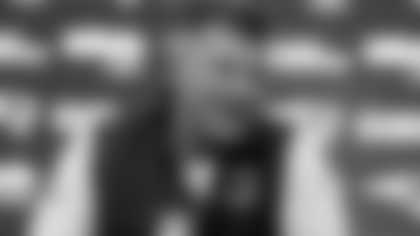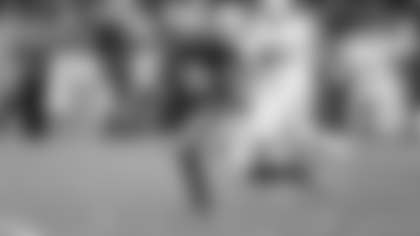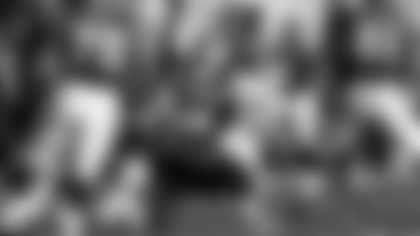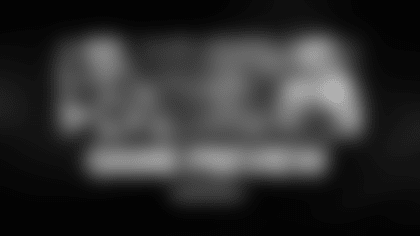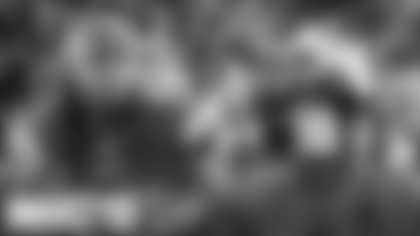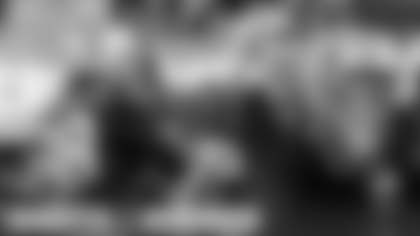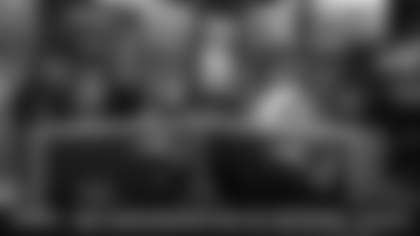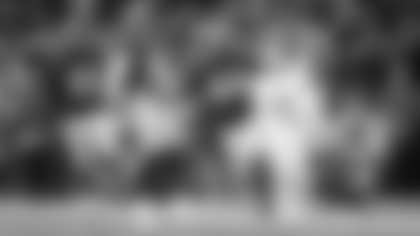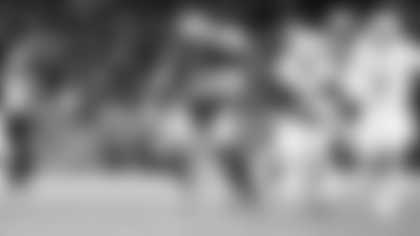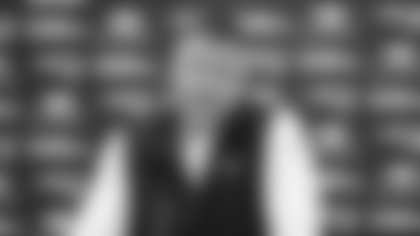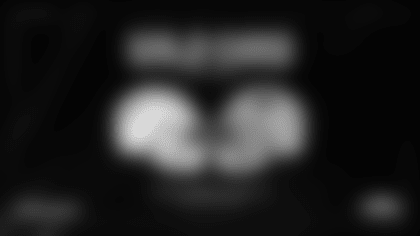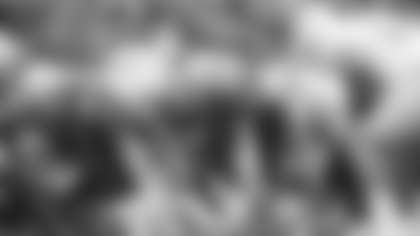After a promising revival for the Patriots, expectations ran high in '75. But rather than improving on his 7-7 record from 1974, Fairbanks saw his club take a giant step backward in his third year as head coach, falling back to 3-11 instead. In fact, both the franchise quarterback and the team's most exciting player became expendable.
New England's problems started even before the season got underway. In the team's last exhibition game before the season opener, Plunkett suffered a separated shoulder and was forced to miss the start of the season. The indestructible Plunkett had not missed a single game in four years despite three knee surgeries and various rib and shoulder problems resulting from the constant pounding he endured since his arrival in New England. With journeyman Neil Graff replacing Plunkett at quarterback the Patriots offense managed to produce only two touchdowns in the season's first two weeks — both losses.
Plunkett returned in Week Three only to have his club pummeled by the New York Jets, 36-7. The Patriots finally registered their first victory the following week against the Baltimore Colts on a chilly, rainy afternoon. Andy Johnson, the second-year running back from Georgia, broke off a 66-yard touchdown run in the fourth quarter to cap a 124-yard rushing effort in the 21-10 win. Johnson registered his second straight 100-yard rushing game a week later against the San Francisco 49ers to help the Patriots to their second straight victory. The 24-16 win came at a costly price, as Plunkett re-injured his shoulder running a quarterback option in the second quarter. Fairbanks putting his still-healing quarterback at risk running a play that left him so vulnerable left many to speculate on the relationship between the two. Unbeknownst to the media and public, Plunkett had requested a trade before the start of the season to get away from Fairbanks.
[

]()
With Plunkett out for the second time, Fairbanks turned to rookie quarterback Steve Grogan. A fifth-round draft pick from Kansas State with great mobility and a strong throwing arm, Grogan immediately endeared himself to the home fans at Foxborough by coming off the bench and throwing two touchdown passes against the 49ers. Grogan started in St. Louis the next week and played well in a 24-17 loss to the playoff-bound Cardinals. The following week, Grogan completed 17-of-28 passes for 245 yards and one touchdown in leading the Patriots to a 33-19 road win at San Diego.
The fans had a new favorite, but with Plunkett healed, Fairbanks selected him to start when the Patriots returned home to play the eventual NFC champion Dallas Cowboys. When Plunkett was introduced at the start of the game, he was greeted with a chorus of boos unmatched in intensity for any Patriot player before or since. Despite suffering a sprained knee in the first half Plunkett put forth a magnificent effort. Though no longer as nimble and maneuverable as he once was, Plunkett ran for one score and threw for three more in leading the Patriots to a near upset of the Cowboys, falling just short, 34-31. As it turned out, his courageous effort against Dallas would be his last game in a Patriot uniform.
Grogan quarterbacked the club the remainder of the season and although the Patriots dropped their next five games to close out the season with a six-game losing streak, it was evident that the components for a powerful offensive unit were in place. Grogan found a favorite target in rookie tight end Russ Francis, a first-round draft pick from the University of Oregon.
The running game took on a new look with Johnson replacing Herron as Cunningham's backfield partner. Johnson's effective running style, along with blocking and receiving abilities made him the perfect complement to the powerful Cunningham, who resumed his position as the Patriots leading rusher in 1975 with 666 yards.
New England struggled on the defensive side of the ball. The most penalized unit in the conference suffered from both injuries and inexperience. Veteran linebacker George Webster and Adams missed considerable time, and although young players like McGee, Hamilton, and Nelson came through with fine efforts, it wasn't enough to solidify the front seven.




